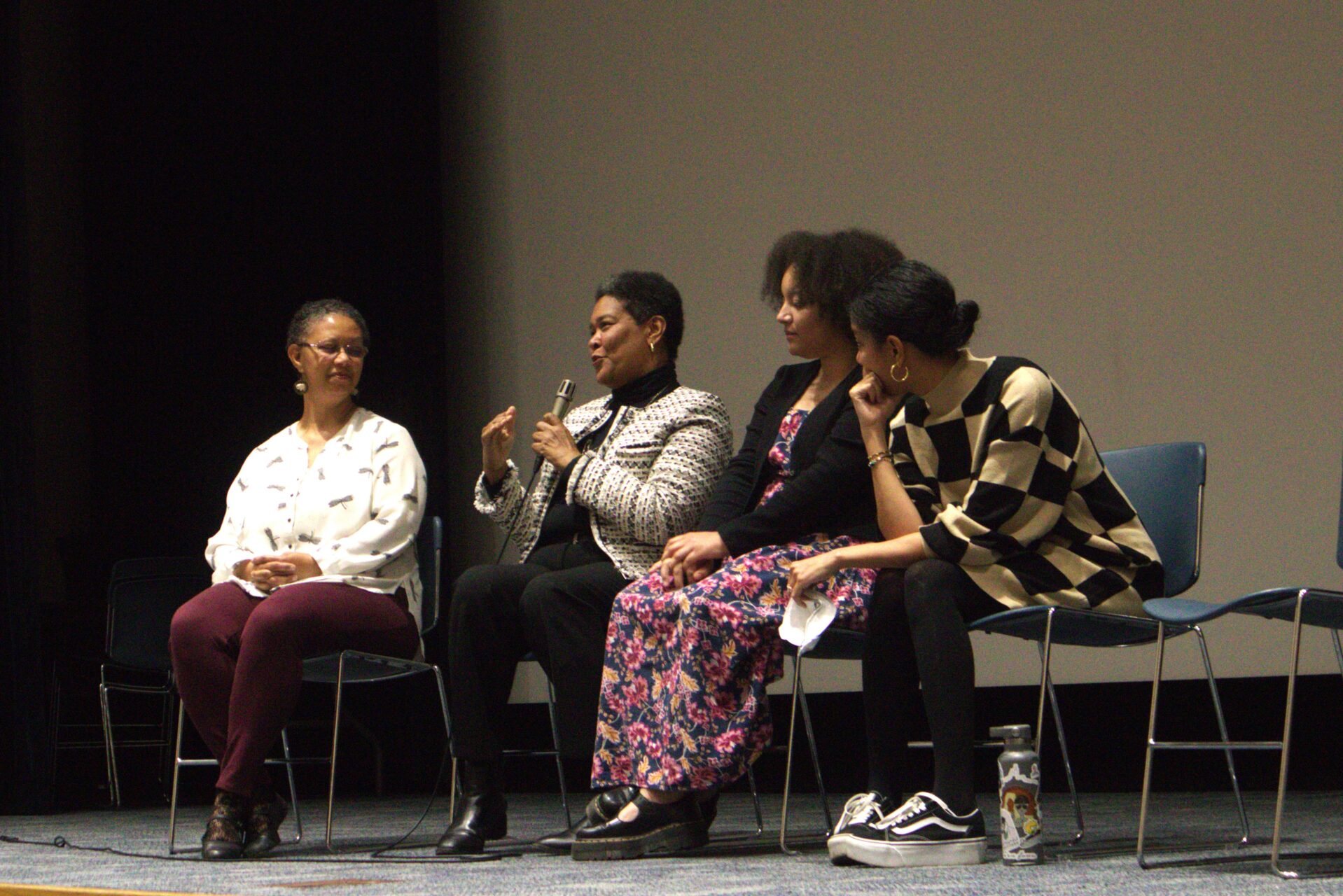
Professors, graduate students, board members of the BYU Slavery Project and more presented their research on the history of slavery in Utah, including reconciliation and healing on Friday, Feb. 16.
The all-day conference at the BYU Varsity Theater, “Truth and Reconciliation: A Conference of the BYU Slavery Project,” featured lectures, presentations and panel discussions about how to reconcile with Utah’s history of Indigenous and African slavery and how to create a community of belonging at BYU.
Christopher Jones, a BYU history professor, began the BYU Slavery Project as a way to study BYU’s history of racial discrimination and slavery, according to an article by Grace Soelberg in the Utah Historical Quarterly.
W. Paul Reeve, the Simmons Chair of Mormon Studies at the University of Utah and one of the speakers for the conference, said acting as though the past didn’t happen is not the way one should approach healing.
“We understand (racism’s) consequences, therefore we can collectively stand in places of empathy and move forward and help root out racism — to lead out in abandoning actions of attitude and prejudice,” Reeve said.
Anthony Bates, the managing director of the BYU Sorensen Center for Moral and Ethical Leadership, discussed how to create a sense of belonging among BYU students in his presentation, “Dignity and Community: Important First Steps Toward Belonging.”
“Are we increasing the overall square footage of holy places in which people on the margins can stand?” Bates asked. “Can we count ourselves among the population of holy people with whom people can stand?”
Bates said constant self-evaluation can lead to Christ-centered personal growth, and ensure others, especially those who are marginalized, are valued. A communal sense of belonging must be confirmed by individuals of the community and not solely by external validation, Bates said.
“We must claim and comprehend the history for ourselves with the determination to understand why this experience might be harder for somebody else,” Bates said.
Farina King, an associate professor of Native American Studies at the University of Oklahoma, mentioned how important it is to love one another and recognize others.
“There’s people who have expressed pain to me who are very close to me … feeling excluded, not feeling belonging in this space currently,” King added. “Sit and listen to them and instill hope and remind them: ‘You are loved. Your voice matters. Keep shining. I love you.’”
Louise Wheeler, a licensed clinical psychologist, gave a presentation about how ancestral trauma can be passed on to future generations.
“We carry our ancestors’ grief, but we also carry their strength, their joy, their ability to push back and fight back,” Wheeler said.
Wheeler also discussed how anger can become an agent for change.
“Don’t just listen and say, ‘This is going to happen when it happens,’ but sit with that anger that people are communicating to you and ask yourself, ‘What is their anger calling me to do? Is it calling me to shut down?’” Wheeler said. “‘Or is it calling me to create change, and am I willing to use their anger to inform the change that I’m making?’”
There are plans to expand resources on the BYU Slavery Project website in the coming months and years, Jones said. They plan to provide historical documents, brief biographies and more to make the project’s research available to the public.
More information about the speakers and their research can be found on the BYU Slavery Project website.




